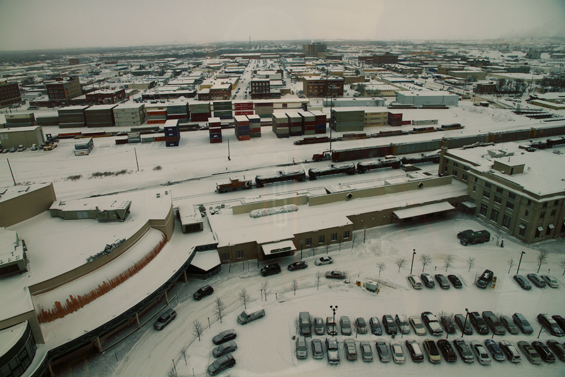
NFB Tour – Regina
NFB Tour – Regina
We were driven from Saskatoon to Regina by a very nice man called Amin (“You know, like when you’re praying,” he said, gently covering his face with both palms. I guess it wasn’t technically a blizzard, but it felt like we were travelling inside some hardcore Prairie version of those glass balls you shake and little snowflakes get all agitated, inside.
The land, when the winds abated long enough for me to actually see anything, was very easy on the eyes. Lazy hills and farmhouses, hidden under thick snow, were separated by seemingly infinite fields, punctuated by little tufts of high grass and fenced-in in cow pastures that reminded me of those those Roman villages, in the Asterix comics. And onwards we drove.
In Regina, the wind was howling. When I asked the people in the hotel lobby if I was delusional to think I could walk to this Ethiopian buffet a dozen blocks away, one of the girls said no, that should be fine, because the wind would be at my back. “Walking back here will be a whole other story though,” she said, serious-faced. “Like, seriously.”
I made it to Selam Restaurant red-cheeked and hungry. Happily, they were open and still serving lunch. Over an outstanding meal of injera (the tef-flour crepes used as utensil) and something ridiculous like 8 different kinds of stews (lentil, ground beef, lamb, green beans, chicken and egg, etc., etc.), I met Tigist, the cook, and Alex, the owner, who told me a bit about their restaurant and Regina’s Ethiopian community.
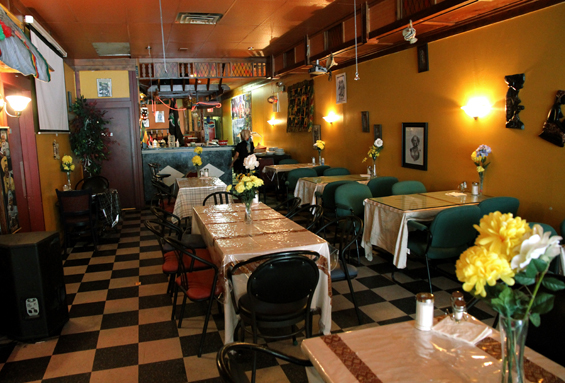
Alex opened Selam 7 years ago. He says he spent the first 3 of those working 24-7 (“no Christmas, no Easter, no holidays nothing”) after none of the banks would agree to loan him money. An Ethiopian restaurant in Regina? Come on son. Was he out of his mind?
Contrary to the financiers’ assessments, business boomed. (For a good reason – Tigist’s food is bananas). The following year, Alex opened a reggae bar in the basement, a place he says jumps with people on weekends and where many out-of-town artists (he named Toronto soul sensation Jully Black) come to perform. Six month ago, he added a finely furnished hookah lounge to the mix, up on the second floor.
“Many of the students that go to the University here come from the Middle East, the Emirates,” he said. “It is so important for them to be able to relax and socialize with a hookah, after school, after work, whatever. There was nothing like that for them, here in Regina,” he said, a look of genuine concern on his face. “When it’s so much part of your culture, and then suddenly you can’t have it, it’s like someone took food or water from you.” A cursory research, back at the hotel, seemed to confirm Alex knew what he was talking about. On Facebook alone, Regina’s one and only Hookah Lounge has well over 1,000 friends.
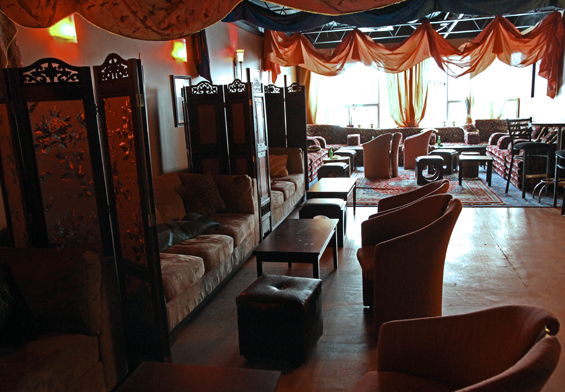
Beyond the food, Alex’s warm and generous ways certainly add to Selam’s mystique. For years now, he’s been on the self-appointed crusade to educate locals about Ethiopia – through their stomachs, but also their ears. Though he will talk to anyone demonstrating an interest (me, for example), his efforts are more specifically targeted at the approximately 300 Ethiopian kids who were adopted into local Canadian families, many of them too young to have any substantial memories of their country of birth.
“They would come here and when I’d play music videos on the screens, music videos from Ethiopia, in Amharic, they would be so fascinated they’d totally forget about their food,” he said.
Witnessing that thirst encouraged him to start broadcasting a weekly radio show, in Amharic, to provide the kids with a living link to parts of their culture. Beyond the talk, he’s also helped raise funds – thousands of dollars – to send these youths to Ethiopia. As I ate more food, he pulled out a letter a young woman had dropped off not long ago, thanking him for having made her first trip back to Ethiopia possible. “I don’t know,” he said. “This kind of stuff makes me happy.”
And I must say it made me happy too,seeing that place and hearing those stories. Stories of students from Abu Dhabi and Azerbaijan, getting together to drink tea and smoke shisha, escaping for a couple hours the cold mean streets of Regina. Stories of soundclashes in the reggae bar, downstairs, opposing fierce local sound systems made entirely of local Japanese and Chinese Canadians. This is my country, I thought. This right here. I was so elated I didn’t even notice the wind blowing parts of my face off as I walked back to my hotel.
That night the meeting was in an art gallery called Nouveau Gallery. It was a beautifully welcoming spot (I actually think the owners live there), with lots to look at inside. As guests strolled in, I admired a triptych of fluffy, furry bison hides, stretched over square canvases. It was titled Postmodern Bison. (Genius.) Upstairs, in the mezzanine, I saw two smaller Joe Fafard pieces (the cow guy). A person I spoke to after the meeting said that Nouveau was one of the province’s most successful galleries.
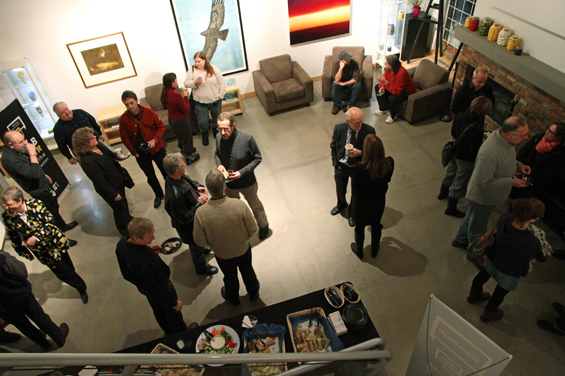
After the meeting, a well-known local blogger whose online moniker is “saskboy” spoke. He said he came from the Saskatchewan town where the documentary Grain Elevator had been shot, in 1981. He said he wanted to let us know that our videos were hard to embed in blogs and that he’d tried to embed Grain Elevator on his own blog but in vain. “I’ve been blogging since 2002 and consider myself an expert blogger.” he said. “If I had a hard time figuring out how to embed videos then others very well might have experienced the same problem.” He said that if the NFB wanted to get out there more and have its films seen, it had to make it at least as easy as Youtube to share videos. “I mean, there’s a problem if it’s easier for me to embed and share dumb cat videos uploaded to Youtube by 13 year-olds in California,” he said.
Near him, a man who said he’d just come from a homeless shelter meeting tackled the digital divide issue, but “from the other end of the spectrum – the analog end.” He said that with television going “dark”, local stories no longer being told, and high-speed Internet not being available to all, would it be possible to have something like a 24-hour NFB café for the homeless? “You know a place where they could play films all day and people could come in and watch, over a coffee?”
Later, a man named Richard said he’d appreciated Tom’s presentation and open-minded approach. “It’s nice that that you have come here to raise questions and not necessarily answer them,” he said. He said that media was in a period of flux these days, now that “the same old bag of resources we once had was gone.” “How do we stumble forward?” he aked. He said it was partly sad to see the old structures falling apart but that that there was also a sense of excitement at all the new possibilities. “I’m old,” he said, “I won’t be part of the solution. I won’t see the new world order. But I know it’s coming,” he said.
Being asked if there was anything he’d like to say about realities specific to Regina, a man said that in his opinion, it wasn’t so much that local stories weren’t being told, but that they were being drowned by all the rest. “It’s like we’re swimming against the tide here,” he said. “If there’s 500 TV channels, 495 of them are programmed in Toronto.” He later picked up the topic someone else had raised earlier about the difference between nation building and society building. “Building a nation… I don’t know about that,” he mused. “It feels somewhat restrictive. But building a society – right here right now – now that’s a project.”
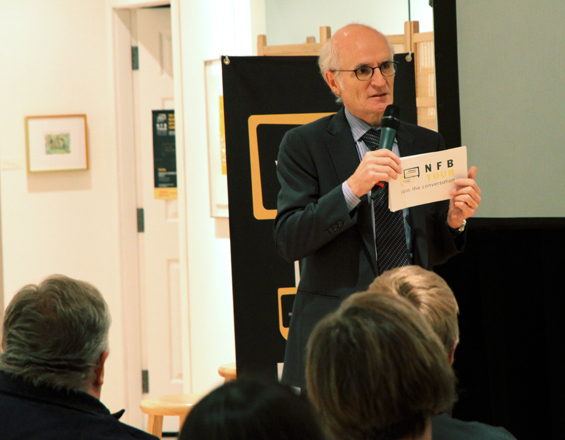

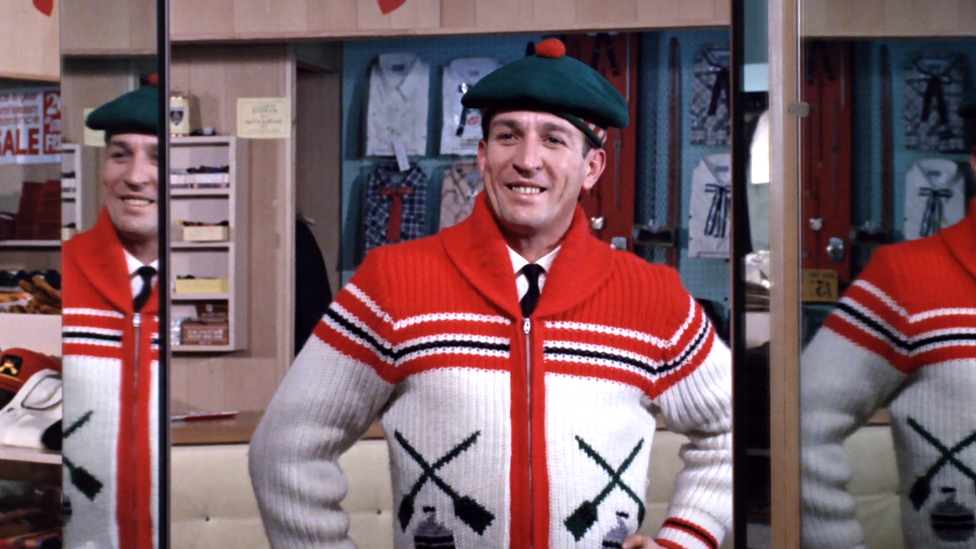

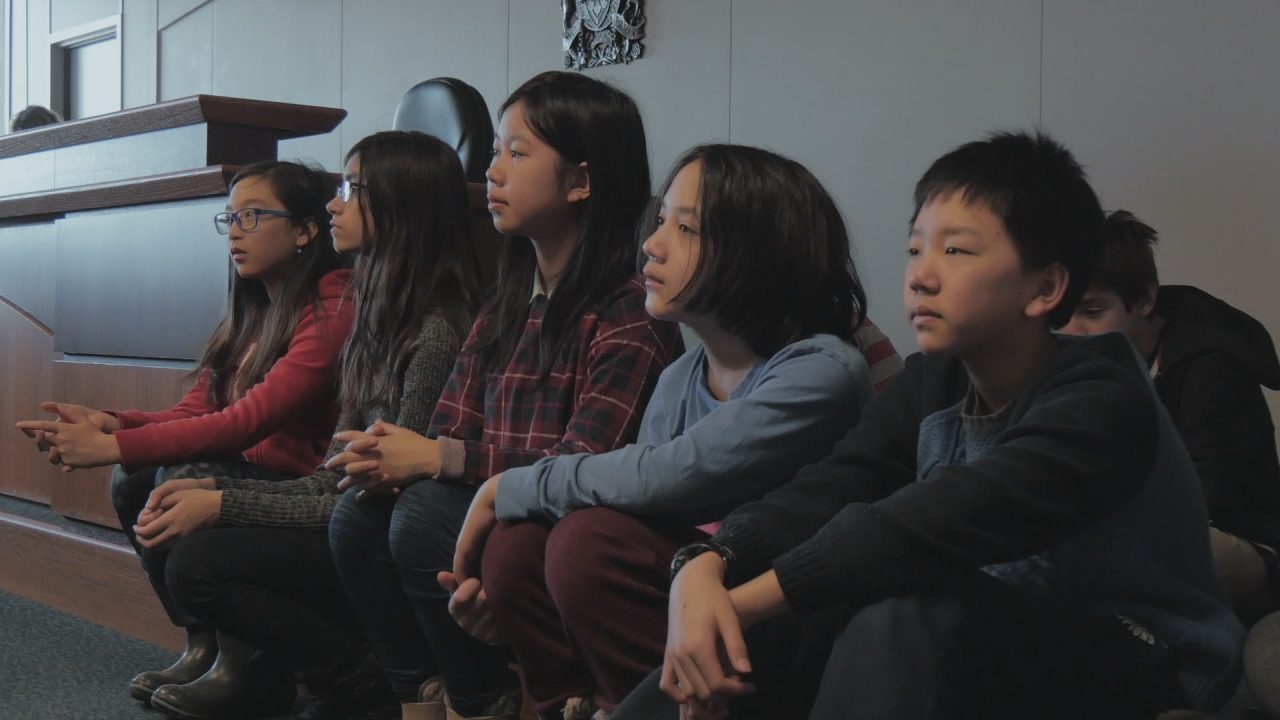
Great read. Thank you.